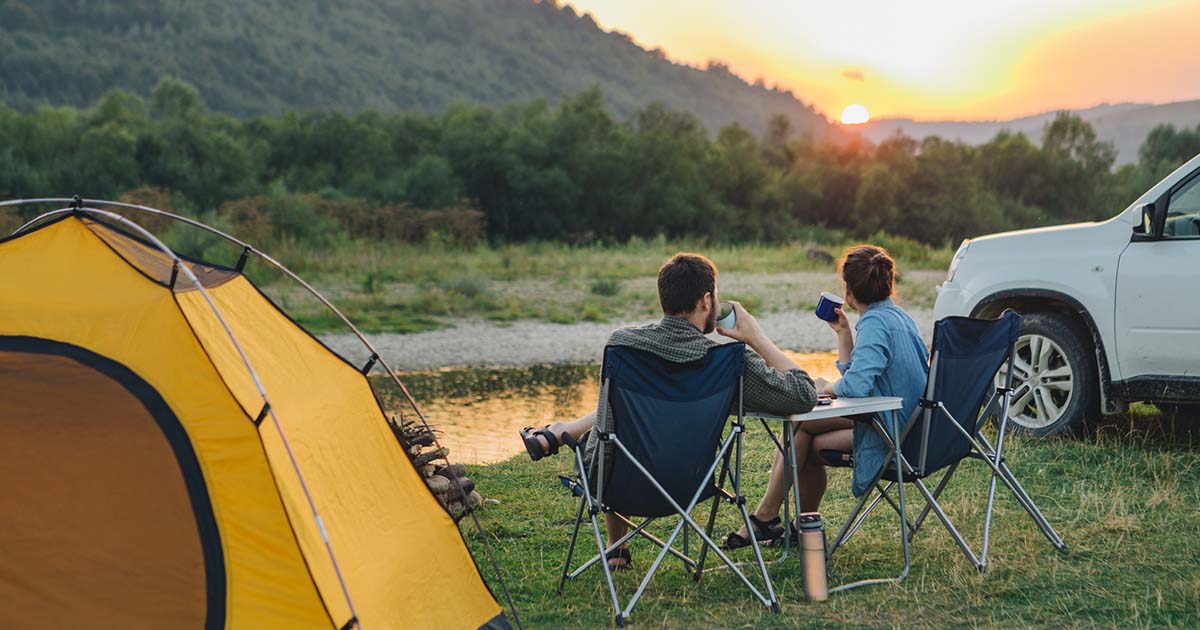Tips For Safe and Fun Camping

Camping is one of the best parts of summer for many Canadians and there are countless beautiful places to go, from provincial and territorial parks, national parks, and campgrounds, to Crown land.
Did you know that close to 90% of Canada’s land area is Crown land – owned by federal or provincial governments -- and you can camp on it for a limited period of time?
According to Off Track Travel, “Canadian residents can camp on Crown land for up to 21 days in any one place in a calendar year.” Regardless of where you go for your camping adventure, make sure to stay safe, have fun, and respect the campsite.
Here are some tips for safe and fun camping.
Bring a friend
Camping is safer and more fun with friends! Do not camp alone; bring a family member or buddy. Remember that you likely will not have cell phone reception, so leave an itinerary with someone you know and let them know when you plan on being back.
Be careful around wildlife
Seeing wildlife is one of the best parts of camping, but you need to be careful around wildlife. BC Hydro points out that “it can be exciting to see animals in their natural habitat, but wildlife can be powerful and unpredictable.” Make sure to:
- Keep food, garbage, and pet food off the ground and secured.
- Avoid bear encounters while hiking by carrying a noise maker, hiking in groups, and keeping your dog on a leash.
If you see a bear, stay calm and talk in a low voice, back up slowly but do not run or turn around, and do not stare at it. Give it space to “Make sure it has a way to get away, and that you are not blocking access to a bear’s cubs or its food.” says BC Parks.
Be safe around water
Lakes and rivers are great places to camp and you can do fun summer activities like fishing, swimming, and boating, but water means risk.
- Watch out for hazards that might not be visible from the water’s surface. Do not dive headfirst into water if you don’t know its depth.
- Obey warning signs.
- Make sure everyone in a boat wears a life jacket and that kids are always wearing one around water.
- Check the weather forecast to make sure conditions will be suitable for being around water.
Avoid bugs
Bugs are annoying and potentially dangerous, but you can avoid bites.
- Use insect repellant.
- “Wear light-coloured, loose clothes made of tightly woven materials such as nylon or polyester. Closed-toe shoes, hats, and tucked-in clothing will also help protect you from bites,” says BC Hydro.
- Check for ticks. They are usually in the scalp, armpit, or groin area.
Practice campfire safety
Campfires can be dangerous in all conditions but especially in dry, warm weather.
- Check for campfire bans and regulations.
- Keep flammable debris like grass and twigs at least a metre (3 feet) away from your fire.
- Keep your campfire at least 4.5 metres (15) feet from your tent.
- Keep fires small, about 0.5m in diameter.
- Never leave your campfire unattended.
- Make sure your fire is completely extinguished and have at least 8 litres of water on hand for an emergency. Let the embers burn to ashes and make sure they are out or break up the fire with a shovel and put it out with water.
Be prepared
Off Track Travel says that “volunteer search and rescue teams such as North Shore Rescue are experiencing a dramatic rise in rescue calls” due to more trail users and new visitors who are inexperienced in the outdoors. Make sure to have essentials for emergencies including:
- A first aid kit
- Pocket knife
- Flashlight
- Whistle or signal device
- Map, compass, and navigation tools
- Fires starters
- Sun protection
- Food and water
- Clothing
- Emergency shelter
Leave no trace
Just like you want a clean campsite when you arrive, campers after you will enjoy their time in the wilderness if you leave the campsite in good shape. It is also important for the survival of local plants and wildlife. Make sure to:
- Camp on durable surfaces.
- Take all waste, even things like banana peels and apple cores with you, and wash dishes away from water sources.
- Take nothing with you from the campsite, including flowers and rocks.
- Not build structures.
- Be respectful of wildlife when you see them.



